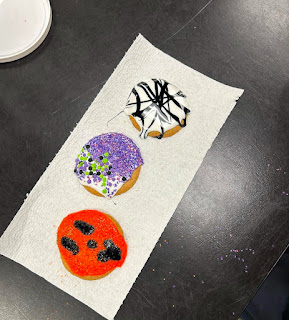Autism is a developmental disorder that affects over two million people in the United States, and tens of millions people worldwide (according to autismspeaks.org).
Dozens of movies have been made about this brain development disorder, like Rain Man, the Bollywood version, Yuvraaj, and The Boy Who Could Fly. Millions of dollars have been poured into research for this disorder.
Understandably, those who have loved ones or know someone with autism have a very different view of autistic children than society does. Though autism is given light in the media, not many have ever interacted with autistic kids or know much about the condition.
Sophomore Sarah Kampiyil has a seventeen-year-old brother, Jeremy, who has autism. “Autism is a type of mental condition,” she explained. “Some signs of autism can be seen from early childhood.”
What are some identifiable characteristics of autistic children? Mainly, autistic children have a problem with social interactions. Some with autism have “difficulty in carrying a long conversation, have no direct eye contact, aversions to answering questions about themselves, and many more,” said Kampiyil.
Kampiyil’s point of view of autism is obviously different than the rest of society’s because she deals with autism 24/7.
When asked what misconceptions society seems to have about autism, she stated “Sometimes, people think they [autistic kids] are weird, creepy, not normal, and don’t want to be around them.” Kampiyil has seen this firsthand.
“What people don’t understand is that autistic people are very sweet and special. They love to make friends and have feeling just like all of us.” Kampiyil added.
Not long ago, the cause of autism was not known, but it is a disorder, not a disease. It is not contagious. Over the last five years, scientists have investigated the possibility of autism being caused by genetic mutations.
Freshman Nabilah Miah doesn’t have any siblings with autism, but some of her closest friends do. “I have a friend, Mariana, who has a nineteen-year-old brother with autism. It’s really hard for him, and it’s really hard for her too. People judge you once they find out that you have an autistic sibling.”
“ I’ve seen people hesitant to socialize with autistic kids. It’s like they think it’s a disease that can be spread by germs, like autism can somehow rub off on you if you’re around them.” Miah said.
Junior Nicholas Nasuti spent a summer working at UCP, United Cerebral Palsy, which holds a summer school for children with all sorts of disabilities, including autism. “When you start working with them, you realize how extremely unique each one is. I feel like society views them like they’re a hopeless cause, but they’re definitely not.” Nasuti said.
As research paves new paths to the road of discovering what causes autism and why autistic children act the way they do, many efforts have been made to make society more “autism-friendly” by bridging the gap between the autistic and non-autistic world.
Here at Seminole, the Best Buddies Club seeks to provide autistic and other special needs children with one-on-one friendships. Once a month on Fridays, they go to Millennium Middle School and interact with the students.
Junior Grace Li, vice president of Best Buddies, said “They don’t act like how they’re depicted in society. I feel like they’re nicer and more sincere than people without disabilities.”
Though it’s disheartening that autism is misunderstood by a part of society, efforts like those of Li, Kampiyil (who is also in Best Buddies) and various organizations such as Celebrities Against Autism, an organization that seeks to help families of autistic children, and UCP, are slowly paying off.
As awareness increases, hopefully misconceptions about autism will decrease, providing a brighter future for those with autism.























